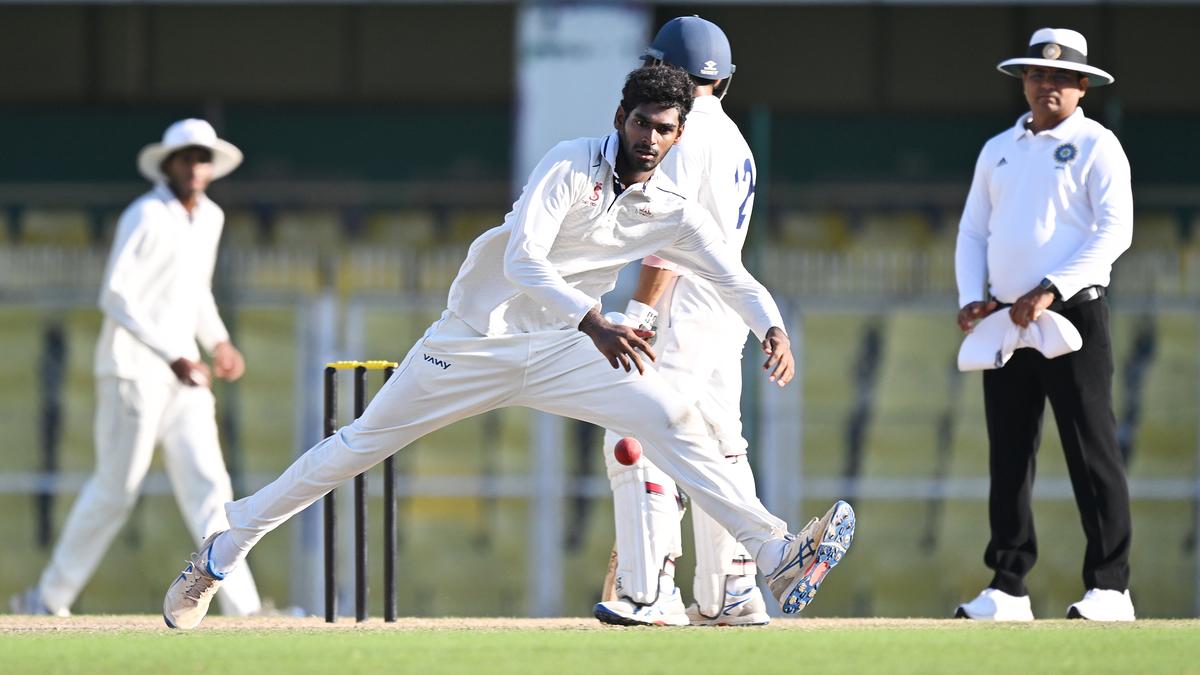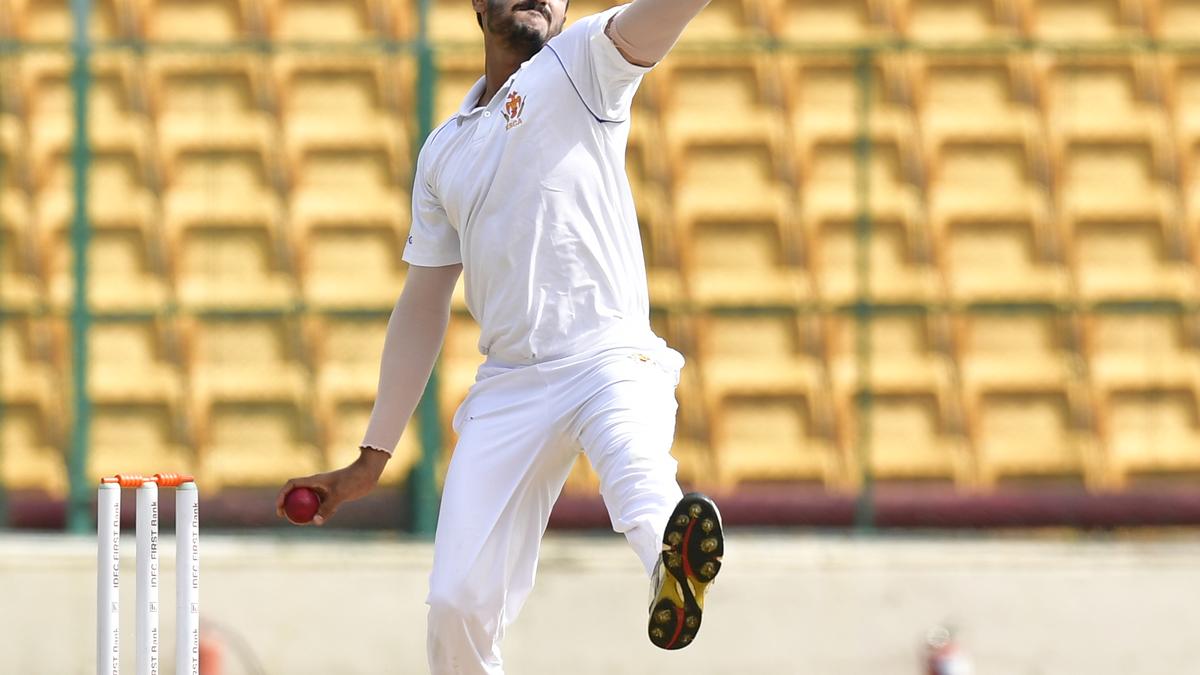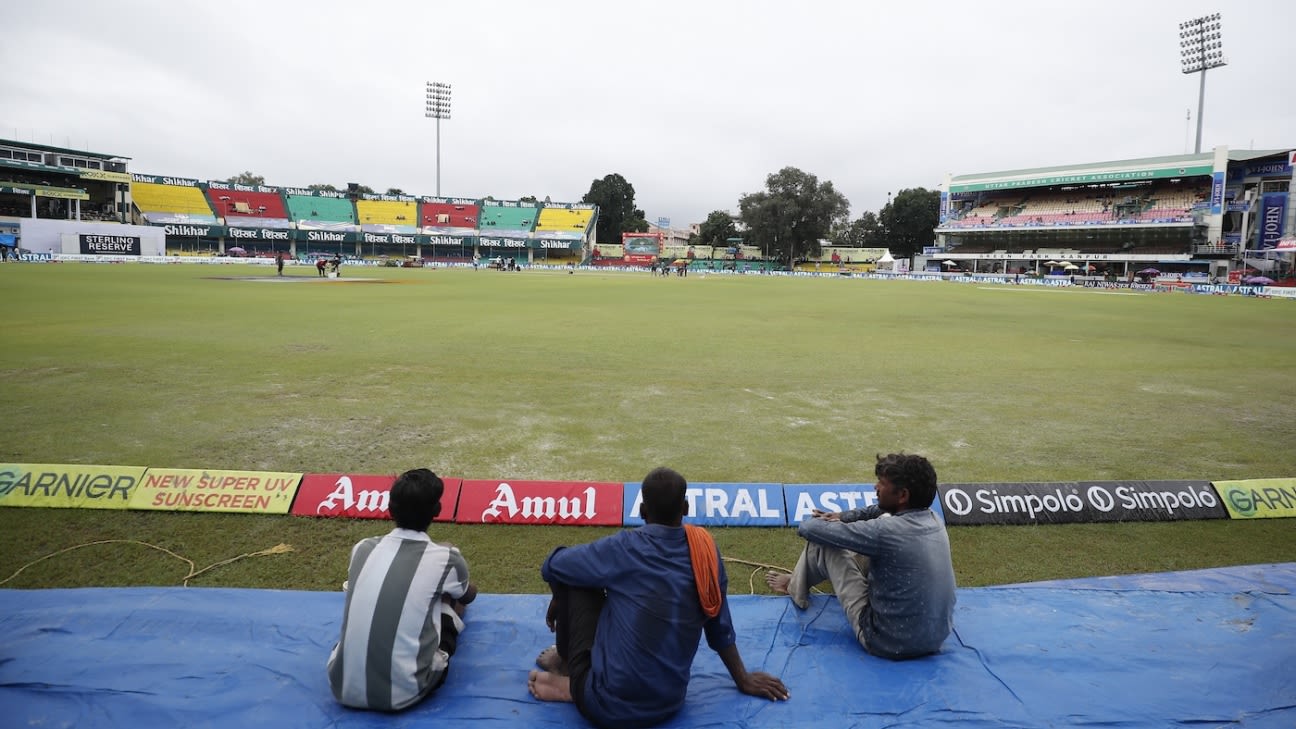The Hundred, a fast-paced cricket tournament, has witnessed a significant decline in scoring this season, with the average first-innings total dropping from 155 last year to 133 this year. Trent Rockets captain Lewis Gregory believes that the culprit lies in the condition of the pitches.
Gregory attributes the low scores to “tired” pitches, which have been affected by the heavy rainfall experienced in the UK this summer. He notes that the Hundred’s balls, which have extra lacquer for branding purposes, tend to swing more than the standard white Kookaburras used in other competitions. This combination, coupled with the deteriorating pitches, has made it challenging for batters to score freely.
The Rockets’ recent loss to Birmingham Phoenix, where they were bowled out for 118, exemplified the difficulties faced by batters. Gregory highlighted the substantial new-ball movement, which has been a common theme in the Hundred this year.
“You’re seeing the ball get off straight a lot, which obviously makes it difficult to whack out of the park when the ball is moving around,” Gregory said. “There’s a lot of cricket throughout the English summer and [we are] coming towards the back end. There are a few tired wickets that bring spinners into the game, and then there’s a few wickets that have done a lot for the seamers.”
Gregory’s observations are supported by the fact that the average first-innings score in the women’s Hundred has remained relatively unchanged from last year. Some pundits suggest that the women’s game has benefited from groundstaff leaving more grass on pitches, providing a more balanced surface.
In a bid to overcome the challenges posed by the pitches, the Rockets employed a tactical move during their loss to Phoenix. They retired Imad Wasim out with 14 balls remaining, sending in Chris Green to target a short leg-side boundary. Gregory explained that the decision was made to introduce a right-handed batter to exploit the shorter side.
Gregory believes that retiring batters out tactically will become more common in the Hundred’s shorter format. “We’ve spoken about it throughout the competition and everyone’s been happy, if there’s a case to retire someone, everyone’s comfortable with that,” he said. “The shorter the format, you will see it a bit more… there’s not much time, and if you think someone’s not quite got the surface or the opposite down, it is giving someone else an opportunity to be able to do that.”






